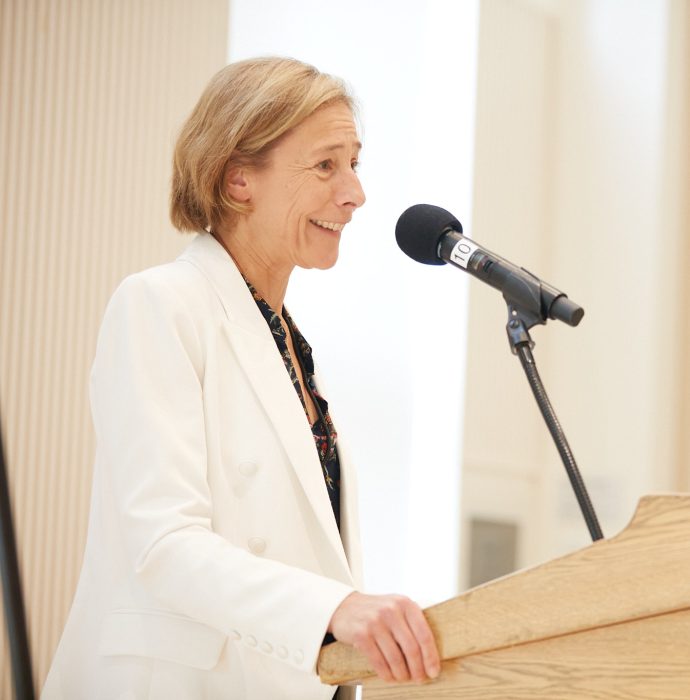


Thank you to the ACLS team for organizing such a powerhouse opportunity for leadership development: Through events like these we can maximize universities’ social impact through a more vibrant, visionary, inclusive, and thriving academic community.
The ACLS Leadership Institute for a New Academy (LINA) is a pilot initiative of the IDEA (Intentional Design for an Equitable Academy) unit at ACLS, designed to galvanize faculty to forge career paths that will strengthen the humanities and drive social justice-focused change. This program is generously funded by the Mellon Foundation.
Through a series of workshops with sitting and recent deans, the pilot year of LINA is shaping the development of a comprehensive program for change-oriented leaders in higher education, with a focus on those in administrative roles. LINA also seeks to cultivate a vibrant support network for participants as they navigate the early stages of their administrative careers. This peer community is a vital resource in which participants can share, amplify, and refine effective strategies for sustainable change. Ultimately, LINA aims to support leaders in higher education to develop their awareness of how they can empower themselves and others to springboard change.


Thank you to the ACLS team for organizing such a powerhouse opportunity for leadership development: Through events like these we can maximize universities’ social impact through a more vibrant, visionary, inclusive, and thriving academic community.
The LINA pilot institute, held during the spring and summer of 2023, featured a series of online and in-person convenings bringing together over 60 scholars with recent experience as deans or in comparable posts and a demonstrated commitment to enacting or accelerating transformational change in the academy. They discussed and shared strategies for addressing challenges at the institutional level, including retaining faculty of color, curriculum design, and allocating institutional resources, and at the systems level, including setting disciplinary norms and rethinking the social role of the college/university.
[LINA] is based on the idea that people can carry out change even in the most change-resistant systems.” Joy Connolly, ACLS President
The half-day sessions in February and March 2023 were led by LINA’s Steering Committee, a group of imaginative changemakers and academic administrators who assisted in designing the program.
LINA’s Summer Institutes at Sarah Lawrence College and Tarrytown House in July 2023 were led by ACLS staff and various facilitators who brought their innovation and expertise as change-oriented leaders in the academy.
The Intentional Design for an Equitable Academy (IDEA) unit draws on human-centered design as a methodology for developing activities and convenings where we can re-envision academia’s culture, policies, and practices. Led by IDEA Director Jovonne Bickerstaff, the unit includes the Intention Foundry (IF), the ACLS Digital Justice Grant Program, and the Leadership Institute for a New Academy (LINA). ACLS takes this moment as a call for cultivating opportunities for reparative intervention and transformative engagement that further ACLS efforts to enhance equity, justice, and well-being in the academy.
The New Academy discussion group is a confidential space for faculty, department heads, and administrators to share ideas and resources with a community of change-minded peers. The Building Blocks for a New Academy newsletter provides quarterly updates from this growing community.